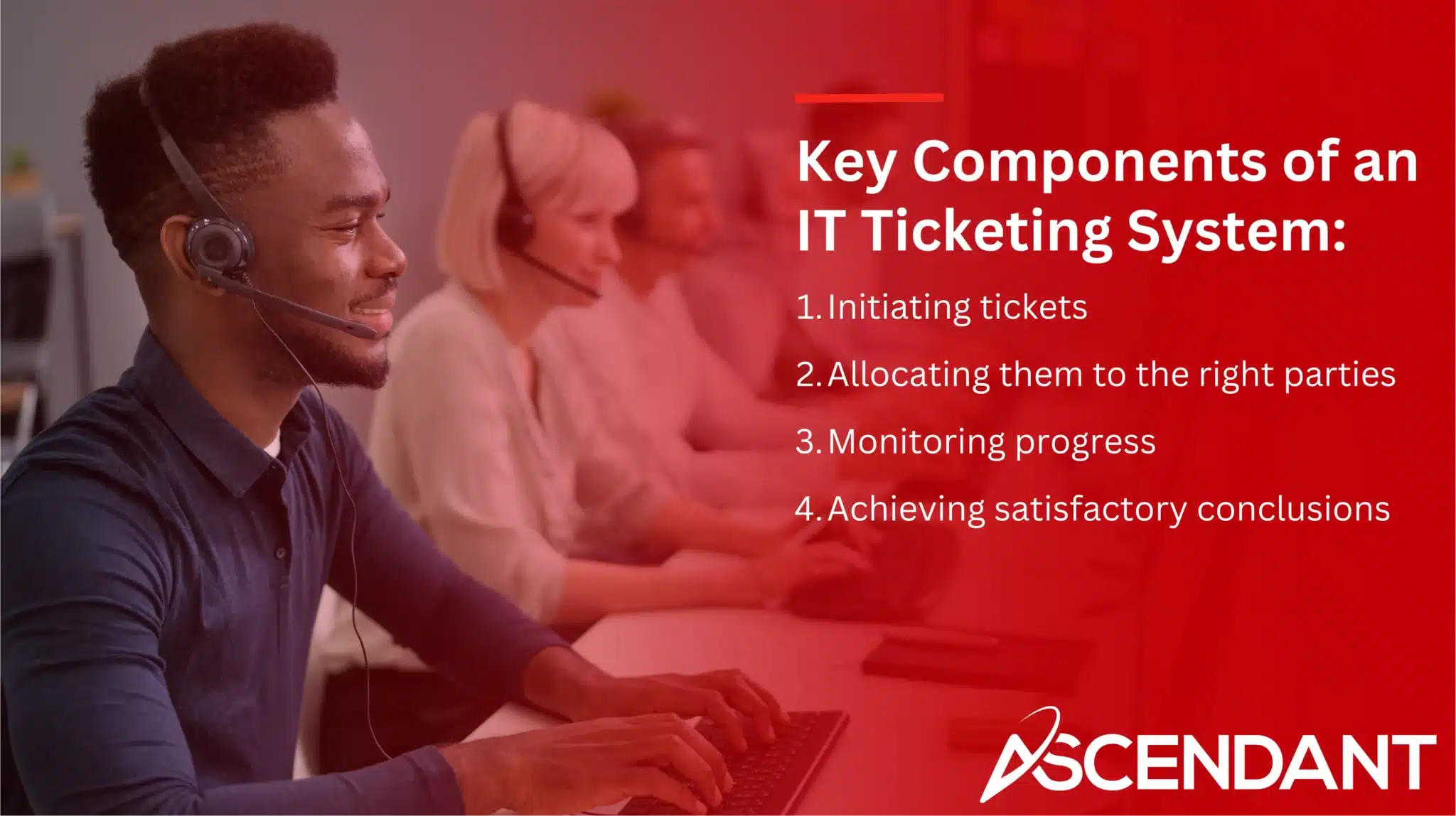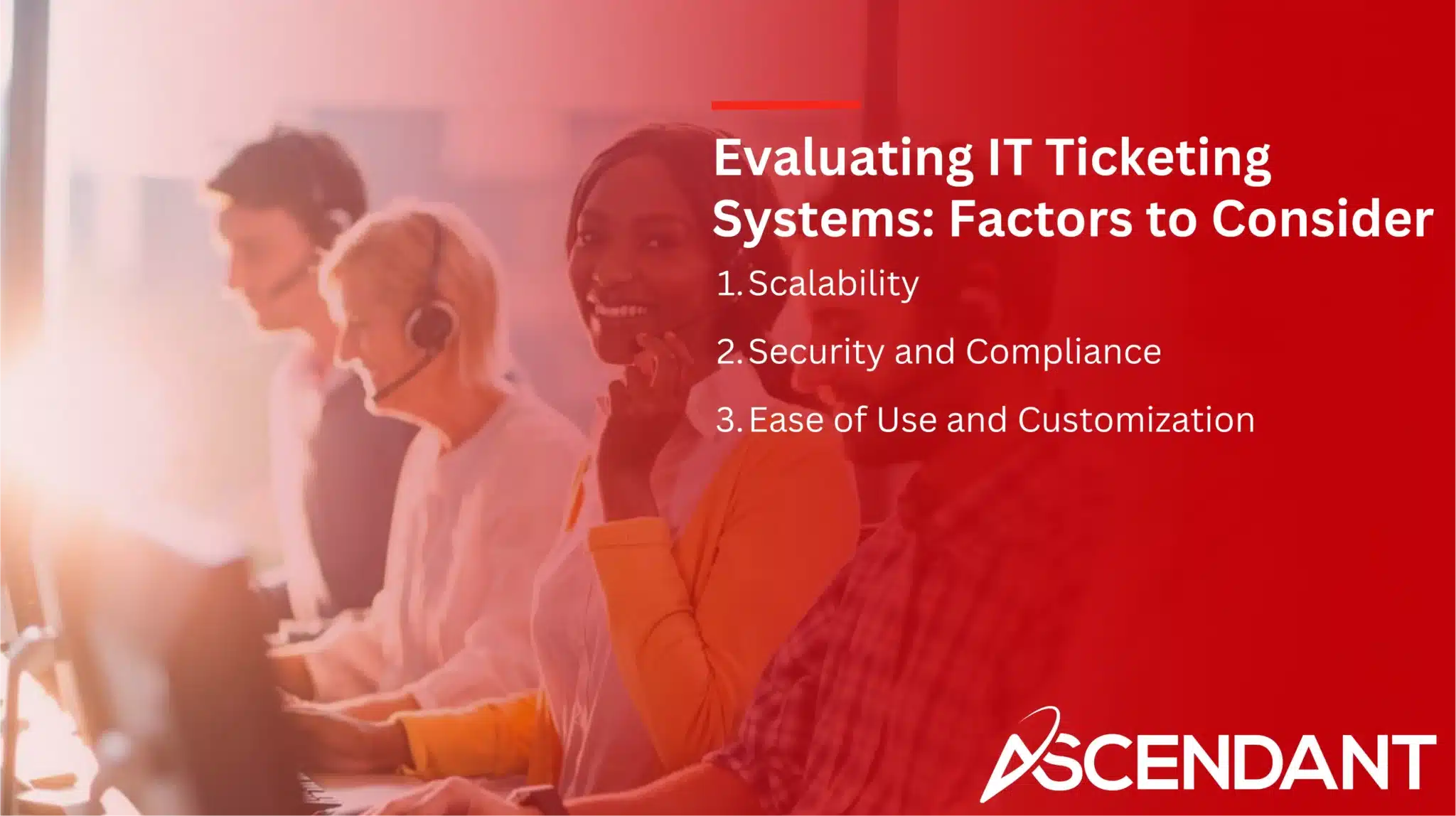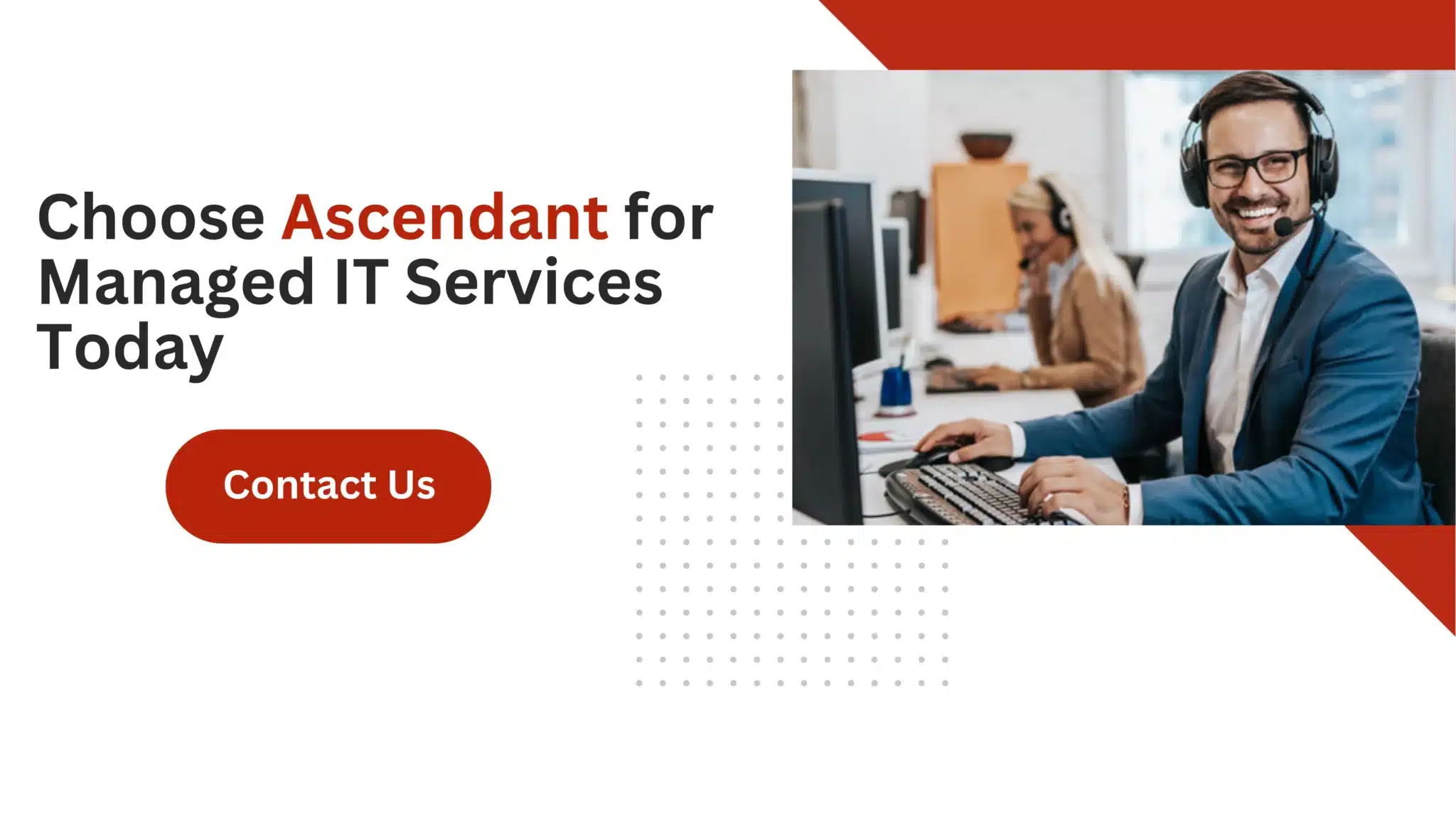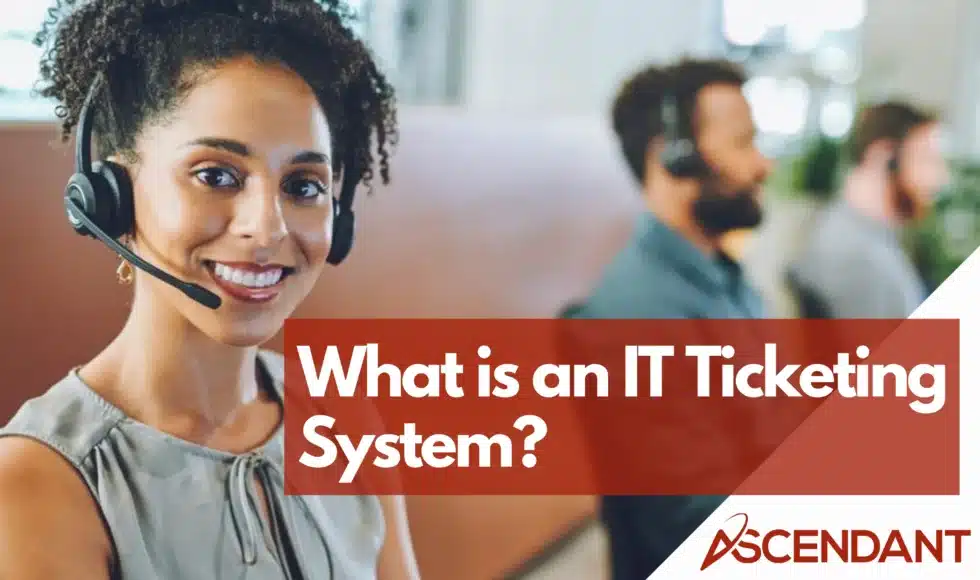What is an IT ticketing system? It’s a crucial component in modern customer service, providing a structured environment for managing support requests. It ensures no customer issue goes unchecked and facilitates a systematic approach to problem-solving by service teams. Throughout this article, you’ll discover exactly how an IT ticketing system can revolutionize customer support, the key features that elevate its performance, and how to choose the right one for your operations.
Key Takeaways
- An IT ticketing system is a multifaceted platform designed to manage and resolve customer service issues effectively, ensuring that every interaction from emails, social media, or calls is recorded and addressed in an organized manner.
- Using IT ticketing systems benefits businesses by improving organization, increasing efficiency, enhancing customer satisfaction, and providing valuable data-driven insights for better decision-making.
- When selecting an IT ticketing system, essential features to look for include multi-channel support, robust automation and workflow management, comprehensive reporting and analytics, integration capabilities, and factors like scalability, security and compliance should also be considered.
Defining IT Ticketing Systems
The fundamental purpose of an IT ticketing system is a type of customer service software aimed at:
- Efficiently keeping tabs on client issues to ensure they’re addressed promptly
- Acting as a conduit between customers and support agents, promoting smooth communication
- Transforming queries from various platforms like emails, social media, and phone calls into manageable tickets
- Allowing organizations to handle support requests effectively through an orderly process that facilitates easy tracking.
In terms of functionality, help desk ticket systems are designed to:
- Allocate tickets to the correct members of the support staff
- Maintain records of all correspondence threads in their entirety
- Support teamwork and accountability within the ranks of support teams
- Guarantee comprehensive documentation so that no exchange with clients goes unnoticed or ignored
They function as a digital repository where every interaction with customers is systematically stored for quick retrieval. A key advantage offered by these IT ticketing systems includes their capability to:
- Streamline procedures and standardize responses which result in uniform service levels across multiple points of contact
- Offer real-time transparency regarding the current status throughout each phase that a ticket undergoes ensuring no issue gets overlooked
- Optimize workload distribution, improve team coordination efforts, and hasten resolutions thanks to features dedicated for sorting out assignment priorities.
Ultimately, a desk ticketing system stands out as an integral solution brimming with tools crafted specifically for supporting customer-facing representatives during routine tasks. It’s this integration making it indispensable for any effective help desk operation.
Key Components of an IT Ticketing System

At the core of each IT ticketing system lies a robust process for managing support tickets from initiation to resolution. This includes:
- Initiating tickets
- Allocating them to the right parties
- Monitoring progress
- Achieving satisfactory conclusions
This systematic approach ensures that every customer request is addressed efficiently and effectively by customer service representatives. The simplicity of operation, highlighted by an intuitive interface offering immediate visibility into current statuses, plays a critical role in its functionality. It facilitates user-friendly interaction for both technical and non-technical users while handling customer requests adeptly.
Equally important is the capability of this system to delineate user roles accurately, permitting various levels of access and functionality tailored for agents providing assistance, administrators overseeing operations or individuals simply observing processes. Incorporating service level agreements (SLAs) helps guide reps as they prioritize incoming support requests ensuring expectations are met transparently and systematically. Collectively these elements constitute a proficient ticket management ecosystem that propels operational efficiency forward while elevating overall customer satisfaction levels.
Types of IT Ticketing Systems
As diverse as the businesses themselves, with their distinct sizes, objectives, and clienteles, are IT ticketing systems. A universal solution is not applicable in this context. These systems vary greatly depending on attributes such as their functionalities, cost structure, and intended market segment. This variety guarantees a suitable ticketing system for every type of business from burgeoning start-ups to expansive corporations.
When selecting an appropriate support ticket system one should take into account:
- The scope of the system characterized by its array of capabilities and potential integrations
- Its specialization for particular sectors or customer support roles
- The spectrum of financial plans it provides which may range from monthly fee models to more exclusive premium packages
The key lies in securing a support ticket system that perfectly aligns with both your organizational requirements and fiscal constraints.
Benefits of Using IT Ticketing Systems
IT ticketing systems transcend their primary role of handling support tickets, bringing multiple advantages such as:
- Smoothing out communication channels
- Guaranteeing every customer inquiry is addressed
- Equipping agents with the tools and knowledge needed for quick resolution of issues
- Elevating productivity while refining the overall customer service experience.
A key advantage of these IT ticketing systems lies in the transparency and management they provide. Tracking the status and movement of each ticket ensures that all customer issues are acknowledged and dealt with swiftly. This level of oversight is critical for effective service desk operation, minimizing potential discontent from customers due to missed or slow responses.
IT ticketing systems enhance services by:
- Facilitating omnichannel communications so customers can engage via their chosen platform (whether it’s email, phone calls, or social media) while receiving a uniform quality of assistance.
- Augmenting efficiency through process automation.
- Offering self-service options that empower customers.
Documenting support interactions which plays a pivotal role in fostering increased loyalty among clientele.
Improved Organization and Efficiency
Delving into the advantages of IT ticketing systems, one can’t ignore how they enhance organization and efficiency. A well-structured ticket management process offers these benefits:
- Establishes priority levels for tickets
- Utilizes labeling and tagging features
- Connects related support inquiries
- Facilitates use of predefined responses
These elements lead to a smoother workflow for both customer service teams and support agents. Efficient sorting and assigning of tickets doesn’t just save time, but also ensures that workloads are distributed fairly among team members.
The role automation plays in improving efficiency is crucial. By cutting down on manual tasks, it enables custom workflows, automatic categorization, and prioritization of incoming queries. Self-service options backed by strategies to deflect tickets before they reach an agent as well as chatbot assistance provide immediate access to pertinent information from a knowledge base. This functionality reduces the number of incoming tickets substantially easing workload pressure on service personnel — highlighted by organizations noting up to 68% increase in operational efficacy after integrating ServiceNow’s ticketing system into their practices.
Enhanced Customer Satisfaction
Beyond efficiency, IT ticketing systems play a crucial role in enhancing customer satisfaction. By prioritizing critical issues, these systems allow support teams to improve response times and efficiently address complaints, leading to better customer experiences. Prompt and satisfactory responses to customer issues lead to increased loyalty and retention, which are key factors in a company’s profitability.
An example of this in action is Zendesk’s ticketing system, which has boosted user companies’ CSAT scores to 90 percent, reflecting higher customer satisfaction. By providing personalized support experiences, leveraging comprehensive customer information, and maintaining a consistent support interaction history, IT ticketing systems contribute significantly to enhancing customer satisfaction.
Data-Driven Decision Making
Data is a precious resource. IT ticketing systems, with their wealth of data, can be a goldmine for businesses. They provide useful information like contact volume, product pain points, and customer feedback, which can be used to make data-driven decisions such as staffing, content prioritization, and product roadmap planning.
Must-Have Features in an IT Ticketing System
With an understanding of what IT ticketing systems are and the benefits they offer, let’s delve into the must-have features these systems should possess. These features elevate a basic ticketing system into a dynamic customer service tool. They include:
- Multi-channel support
- Automation
- Reporting and analytics
- Integration capabilities
Customizable ticket status options and individual ticket queues are key to better organization. These features, combined with others like related tickets and product associations, provide comprehensive support for resolving customer issues. Efficiency is further increased using customizable ticket templates and tags that streamline the sorting and identification of issues. All these features culminate in an improved user experience, facilitated by real-time updates, notifications, and ease of ticket creation and management.
A good IT ticketing system should be capable of meeting the ever-evolving needs of businesses and their customers. This means it needs to include scalable features that can handle increased volumes of customer interactions and adapt to the changing business landscape.
Multi-Channel Support
In today’s digitally connected world, customers engage with companies using a diverse array of channels. As such, incorporating multi-channel support into IT ticketing systems is critical for the smooth handling of customer inquiries through different communication platforms that include:
- phone
- chat
- social media
Technological progress has introduced functionalities like the management of limitless mailboxes, cloud-hosted calling features, and integration of feedback forms directly onto websites to Bolster multi-channel support. These sophisticated IT ticketing systems provide users with self-service options via tailor-made portals where they can seek assistance on their own while maintaining easy access to direct communication avenues if necessary.
Automation and Workflow Management
Streamlining support processes and enhancing the performance of agents are greatly facilitated by workflow management and automation. The integration of automated responses and artificial intelligence to predict actions can significantly accelerate the resolution process for customer issues, allowing agents to allocate more time on complicated tasks.
Automated ticket assignment along with well-defined frameworks for ticket escalation refine the entire support workflow, which helps in avoiding any neglect of customer queries while ensuring that tickets are handled by suitably equipped resources. Support teams benefit from these technological advances in various ways.
- Devoting greater attention to delivering superior customer service
- Enhancing response times
- Boosting overall efficiency
- Minimizing errors caused by manual handling
- Monitoring and examining data related to tickets
- Sorting out important or category-specific tickets systematically
- Fostering collaboration and seamless communication between team members
These improvements invariably lead to enhanced satisfaction among customers.
Reporting and Analytics
IT ticketing systems equipped with reporting and analytics capabilities yield critical data regarding team productivity and client satisfaction. These tools dissect information, gather performance metrics, and craft comprehensive reports that offer organizations a transparent understanding of how well their support functions are performing.
Utilizing sophisticated analytics instruments allows companies to discern patterns, pinpoint inefficiencies, and base decisions on solid data to enhance their assistance offerings. IT ticketing platforms such as HubSpot Help Desk and ProProfs Desk incorporate features for monitoring key customer service indicators like the rate at which agents respond and the overall number of tickets handled.
Integration Capabilities
The capacity for integration is a critical functionality within IT ticketing systems. It allows for smooth connectivity with additional software, which helps prevent any disruption in workflow efficiency. When an IT ticketing system is incorporated into a broader collection of corporate tools, this feature becomes particularly valuable.
In practice, when you merge ticketing systems with other components of the IT service management ecosystem and infrastructure setups, it results in a cohesive perspective on the health of the entire system. Tailored integrations such as AI enhancements found in Zendesk, shared mailboxes offered by Front, and access to over 50 applications through Help Scout allow these ticketing platforms to align more closely with specific brand styles while addressing distinct business needs effectively.
Evaluating IT Ticketing Systems: Factors to Consider

Selecting an appropriate IT ticketing system is a critical choice that directly influences the efficiency and quality of your organization’s customer service operations. Careful consideration should be given to attributes like scalability, security, compliance, as well as user-friendliness and adaptability.
The capacity for growth within the system is essential, particularly for businesses on an upward trajectory. Your chosen ticketing system must effectively scale up to handle escalating volumes of support tickets in line with business expansion. Given that sensitive customer data will pass through this system, prioritizing security and adherence to applicable regulations cannot be overstated.
Finally, consider how easily team members can use the IT ticketing system and tailor it to specific needs. An intuitive interface promotes swift management of support tickets leading to higher productivity levels amongst agents. Customization features such as modifiable views on tickets or branding elements incorporated into the platform ensures seamless alignment with your company’s unique processes and brand image.
Scalability
The ability to scale an IT ticketing system is vital for companies looking to support growth and manage higher demand levels effectively. As a company grows, the quantity of customer service interactions naturally increases. A scalable service desk software ensures that businesses can adapt to this uptick without the necessity for constant upgrades or transitions to new systems.
When evaluating scalability options, it’s important to consider elements like the supported number of user accounts and capacities for data storage within the platform. Confirming that the ticketing system can efficiently accommodate expanding teams and a growing customer base is essential. Opting for a SaaS-based ticketing solution offers businesses flexible means by which they can enhance their service desk operations in alignment with growth trends while sidestepping Investment in physical infrastructure or proprietary applications.
Security and Compliance
Protecting confidential information within a ticketing system is of utmost importance, with security and compliance elements playing a critical role. Ticketing systems based in the cloud are often seen as more secure, offering advanced encryption of data, measures to ward off cyber-attacks, and comprehensive solutions for backup, security measures, and disaster recovery.
Role-based access control represents another layer of protection by permitting only those users with authorization to view sensitive customer data — enhancing the overall safeguard mechanisms. It’s important that these systems comply with legal standards like GDPR (General Data Protection Regulation) and CCPA (California Consumer Privacy Act), which are instrumental for legally managing and storing client data within ticketing systems.
Ease of Use and Customization
An IT ticketing system’s effectiveness is greatly influenced by how user-friendly and adaptable it is. When agents have access to a straightforward, intuitive interface, they can handle support tickets with greater ease, thus boosting their productivity. Having an IT ticketing system that supports mobile devices ensures consistent usability across different platforms.
The ability to personalize the appearance of the ticket views and embed company branding within the ticketing systems are key features for merging these systems seamlessly into a business’s unique operational procedures and brand image. Tailorable interfaces that allow modifications in layouts and workflows are critical for matching an organization’s distinct processes, enhancing overall efficiency.
Popular IT Ticketing System Examples
Having discussed the essence, advantages, and selection criteria of IT ticketing systems, we can now delve into some notable examples in the market. These include:
- Zendesk Support
- Freshdesk
- Jira Service Desk
- ServiceNow
These platforms provide a suite of cutting-edge functionalities such as seamless multi-channel ticket management, interactive live chat capabilities, comprehensive reporting tools, and unified control panels for overseeing IT tasks.
There is a range in cost associated with these service desk solutions that cater to various budgetary requirements. For instance:
- osTicket: it provides features like automated triage and extensive customization starting from its complimentary trial period.
- Vision Helpdesk: this system has pricing plans beginning at $12 per agent each month.
- LiveAgent: with packages available from $15 monthly per agent.
Given the diversity of ticketing systems and software options on offer within the industry today, companies have ample opportunity to find tailored solutions that align with their financial constraints while meeting organizational scales and customer support needs effectively.
We shall proceed by examining certain prominent systems more closely — considering their principal functionalities, affordability parameters as well as their distinctive merits.
Zendesk Support
Zendesk Support distinguishes itself through:
- Its high degree of customizability
- A broad range of integration possibilities
- Compatibility with over a thousand apps
- Design based on an open-source API
This platform accommodates various business requirements and presents options ranging from a free trial to multiple subscription plans, beginning at $19 per agent each month. This enables companies to select the pricing structure that aligns most closely with their financial constraints.
Prominent functionalities provided by Zendesk include:
- An efficient system dedicated to processing customer messages
- The classification of tickets into questions, problems, incidents or tasks
- A comprehensive perspective on all customer interactions
- Predictive analytics for customer satisfaction
- An extensive knowledge base for self-service resources
- Real-time chat support
- Automated conversational agents (chatbots)
Compliance offerings including those necessary for adherence to HIPAA regulations.
Freshdesk
FreshDesk, a collaborative desk software designed for ticketing and help desk assistance, includes the following capabilities:
- The ability to sort through various customer communications channels and transform those interactions into trackable tickets.
- A well-designed system that efficiently handles messages from customers.
- Streamlined allocation of tickets to the appropriate team members or departments.
- Advanced SLA management features that contribute to boosting overall productivity.
To accommodate diverse business requirements, Freshdesk provides several subscription options.
- There’s a no-cost tier available.
- The “Growth” plan is priced at $15 per agent each month.
- For more advanced needs there’s the “Pro” plan at $49 per agent monthly.
-The most comprehensive offering is the “Enterprise” plan which costs $79 for every agent monthly.
With additional functionalities like collision detection, FreshDesk ensures orderly engagement by preventing agents from responding simultaneously to customer inquiries – promoting an organized resolution of client issues.
Jira Service Desk
Atlassian’s Jira Service. Desk stands out as a widely embraced IT ticketing system, appreciated for its comprehensive capabilities and smooth integration options. It has captured the favor of numerous enterprises due to these strengths.
This service desk provides an option to test its features with no charge, followed by cost-effective subscription packages starting from $22.05 monthly for each agent, thereby presenting an economical choice suitable for companies regardless of their scale.
ServiceNow
ServiceNow delivers IT service management solutions that streamline the handling of service and support incidents. It caters to businesses at varying growth levels with its scalable options: ITSM Standard, Professional, and Enterprise.
What sets ServiceNow apart is its approach to pricing. Instead of publishing fixed rates openly, it provides customized quotes designed to match the unique requirements of each prospective client. This customization guarantees that companies are charged only for the functionalities they utilize.
Summary
In the current landscape of digitization, IT ticketing systems have emerged as a critical component for enterprises. They are pivotal in refining customer support processes, facilitating prompt resolution to problems and thus amplifying client satisfaction. These ticketing platforms enhance operational efficiency through features encompassing multi-channel support, automated workflows, data analysis tools, and integration with other software. Options such as Zendesk Support, Freshdesk, Jira Service Desk or ServiceNow each provide distinct functionalities tailored to various organizational requirements. As advancements in customer service proceed at pace, so does the significance of selecting an appropriate IT ticket system. Businesses aiming to optimize their service desk performance must weigh aspects like scalability potential, security standards, compliance adherence. Along with user-friendliness and customization capacity when choosing a system that will ensure exemplary customer experiences.
 Frequently Asked Questions
Frequently Asked Questions
What is ticketing system in IT?
A tool known as an IT ticketing system is utilized for monitoring events, incidents, alerts, and service requests related to information technology within organizations, facilitating a more efficient resolution workflow.
What is an example of ticketing?
When a customer faces a technical problem with your application and reaches out for assistance via the live chat on your website, this action triggers an automatic creation of a ticket that then enters into the ticketing system.
The support team utilizes this system to effectively monitor and address the issue at hand.
Is a ticketing system a CRM?
Ticketing systems differ from CRM (Customer Relationship Management) systems because they concentrate on resolving customer problems to improve the business’s reputation, whereas CRMs are designed for handling customer data to aid in decision-making.
What are some key components of an IT ticketing system?
Essential for proficient management of support requests, an IT ticketing system must incorporate user-friendly interfaces, role-based access control, and adherence to service level agreements. These elements are pivotal in ensuring a smooth transition of tickets from their inception through to their successful resolution.

